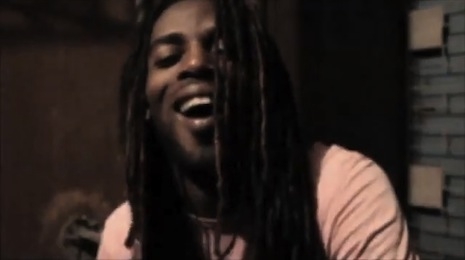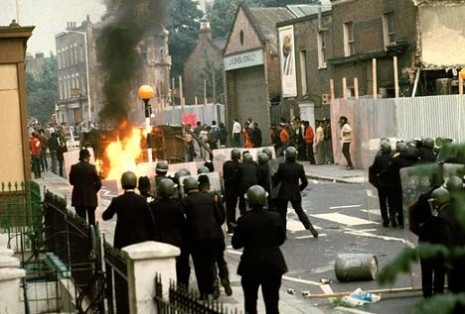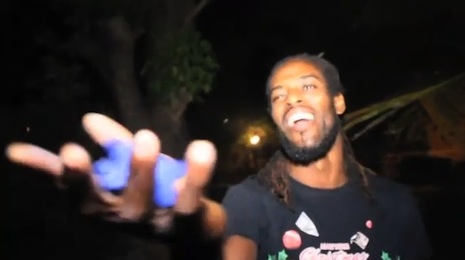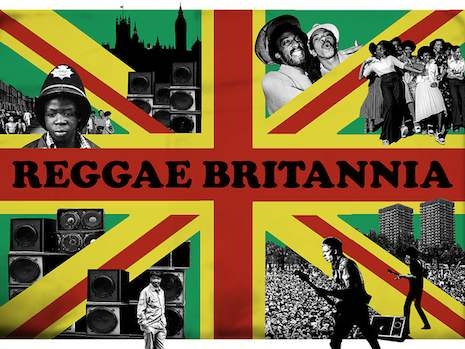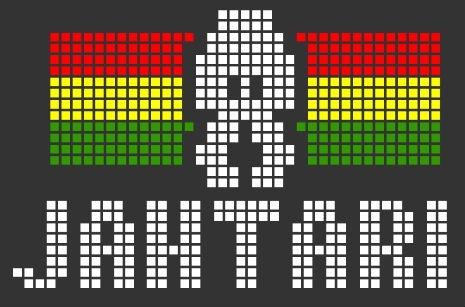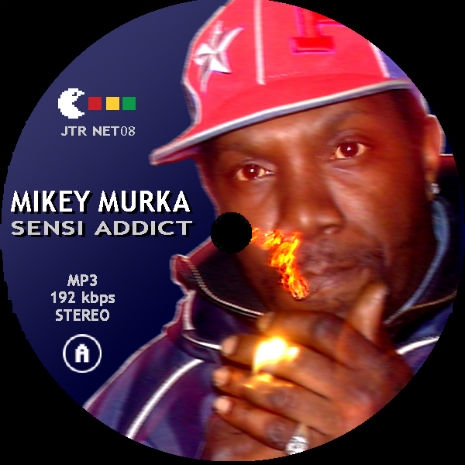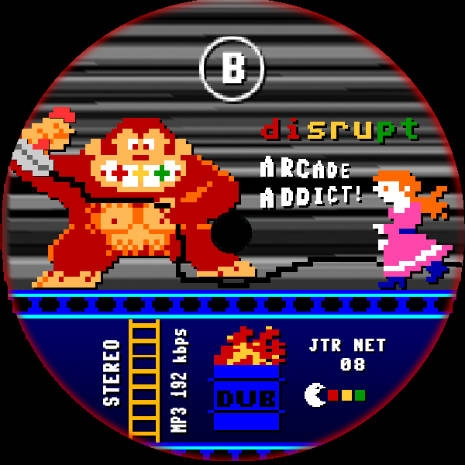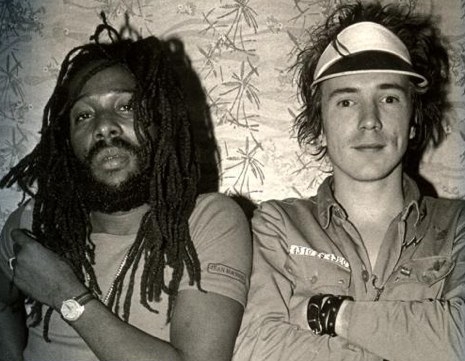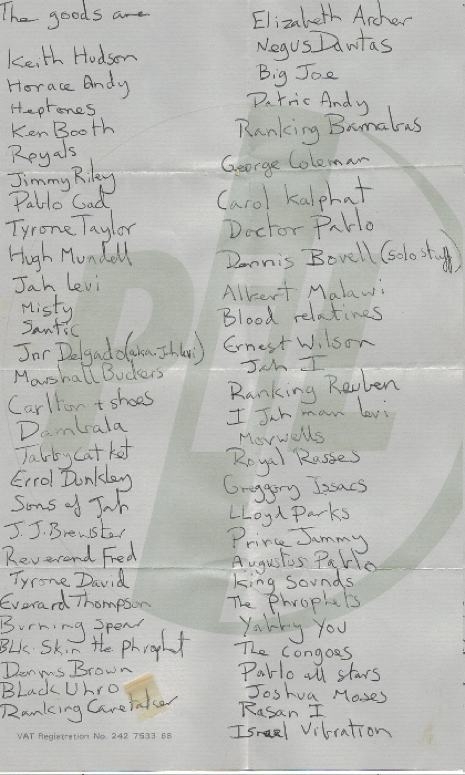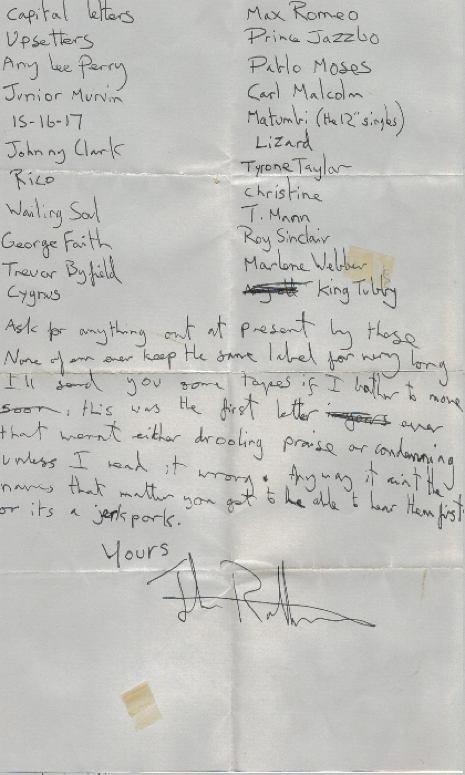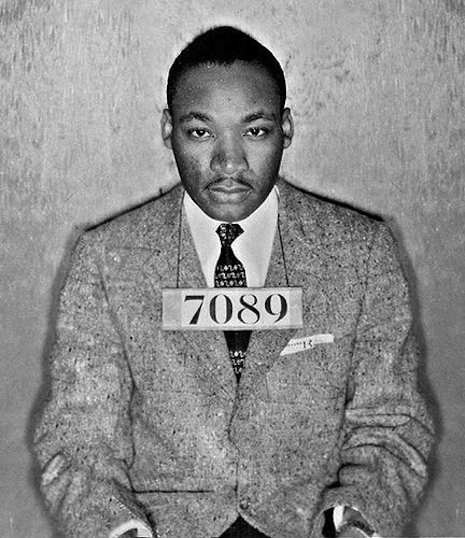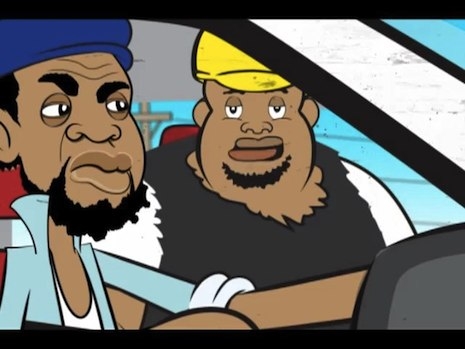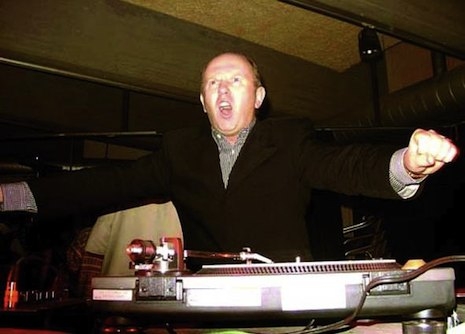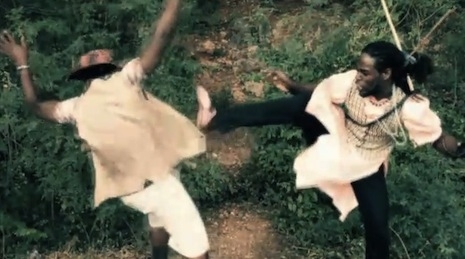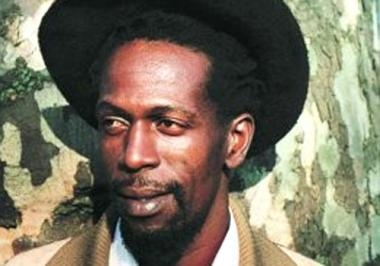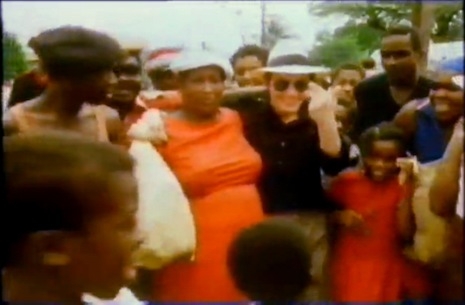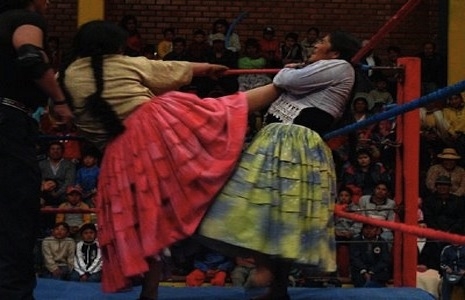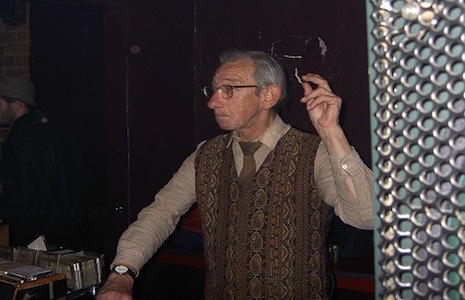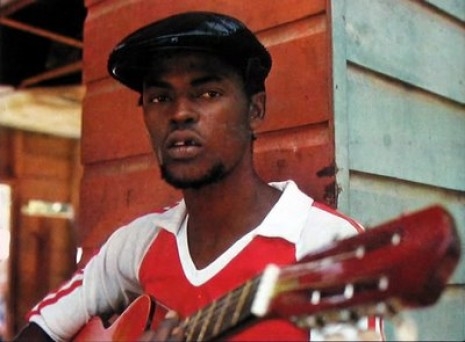Some have conjectured that Lydon formed the embryo of the idea of the bass heavy structures in PIL from his trip to Jamaica, and the sound system dances they attended together there. Don is not so convinced that the trip to JA was as formative an influence on Public Image as some have presumed.
Don Letts: No, John already had that spaciousness, that blueprint in his mind long before we went to Jamaica. As long as I knew John, he had always listened to sparse avant-garde music, stuff like Can , and he really knew his reggae, I have to emphasise that, him and Joe Strummer, Paul Simonon, Jah Wobble, they understood dub, deeply, they had a lot of music I didn’t have you know. Lydon, Wobble and the others, they were turning me on to tunes I never had, it wasn’t always the other way round. We went to a lot of sound system sessions here in London too, people like Jah Shaka, Coxsonne, Moa Ambessa, so really, his experiences in Jamaica were an extension of what had already been in his mind for years, back in North London. Isn’t that just so obvious when you listen to those early PiL tunes, the stuff he was making with Wobble and Keith just after he left the Pistols.
Branson had financed the whole journey, as a chance for Lydon to “cool off”, and at the same time he was to act as a talent scout, signing up emerging reggae stars for the new Frontline roots label. Whilst in Jamaica, Letts and Lydon had met all their “heroes” on the roots and culture scene of that time: rebels, visionaries, chanters and mavericks, microphone chanters like Prince Far I, Big Youth and I Roy and deeply spiritual singers like The Congos, musicians who had produced some of the greatest spiritual masterpieces of their time.
Don Letts: You know, sometimes me and John just had to pinch ourselves to remind ourselves that we weren’t dreaming all this! It was great for us to be meeting and working with these guys, guys whose music we really admired and loved!
What did the Rastas make of Johnny Rotten? I had heard numerous stories and reports of John Rotten, dressed entirely in black from head to toe, clad in heavy black motorbike boots, black hat and heavy black woollen overcoat, walking through fruit markets in the heat of a full Jamaican summer! So was this fanciful rumour?
Don Letts: Yeah, it’s not rumour, that’s true! You know why he did that? John didn’t want to go back to London with a tan! Respect to you John!
So what did the Rasta’s make of John then?
Don Letts: The Rastas loved John! To them he was “THE punk rock Don from London” they were aware of all the trouble he had stirred up in London, and yeah, they were into what he stood for and his stance, and they dug it… We smoked a chalice together with U Roy for breakfast, and then went out to one of his dances, miles out in the countryside, quite a long journey by car. I remember the dreads stringing up this sound, and kicking off with some earthquake dubs. Now let me tell you this sound system was LOUD, and me and John both of us, literally passed out! I remember hours later some dreads shaking us awake, it was like, “Wake up man, dance done, dance finish now man!” Yeah, it was pretty wild for me and John out in Jamaica. We loved it. John just had a vibe you know, people were drawn to him. It was the same in London; it was the same in Kingston. John is Irish, and there is a definite affinity between Jamaicans and Irish! We’ve all heard the saying “no Irish , no blacks, no dogs”, which used to appear in pub and lodging windows and well, there must have been a reason for that, that ethnic grouping together, that ethnic rejection ! Jamaicans and Irish people have always got on together in England, though I can’t say for sure why. A similar attitude to life perhaps? Who knows why they should tune in to each others psyches so well…Is it that both are oppressed peoples, or that both have a natural rebelliousness of spirit? Someone should do a study of it!
